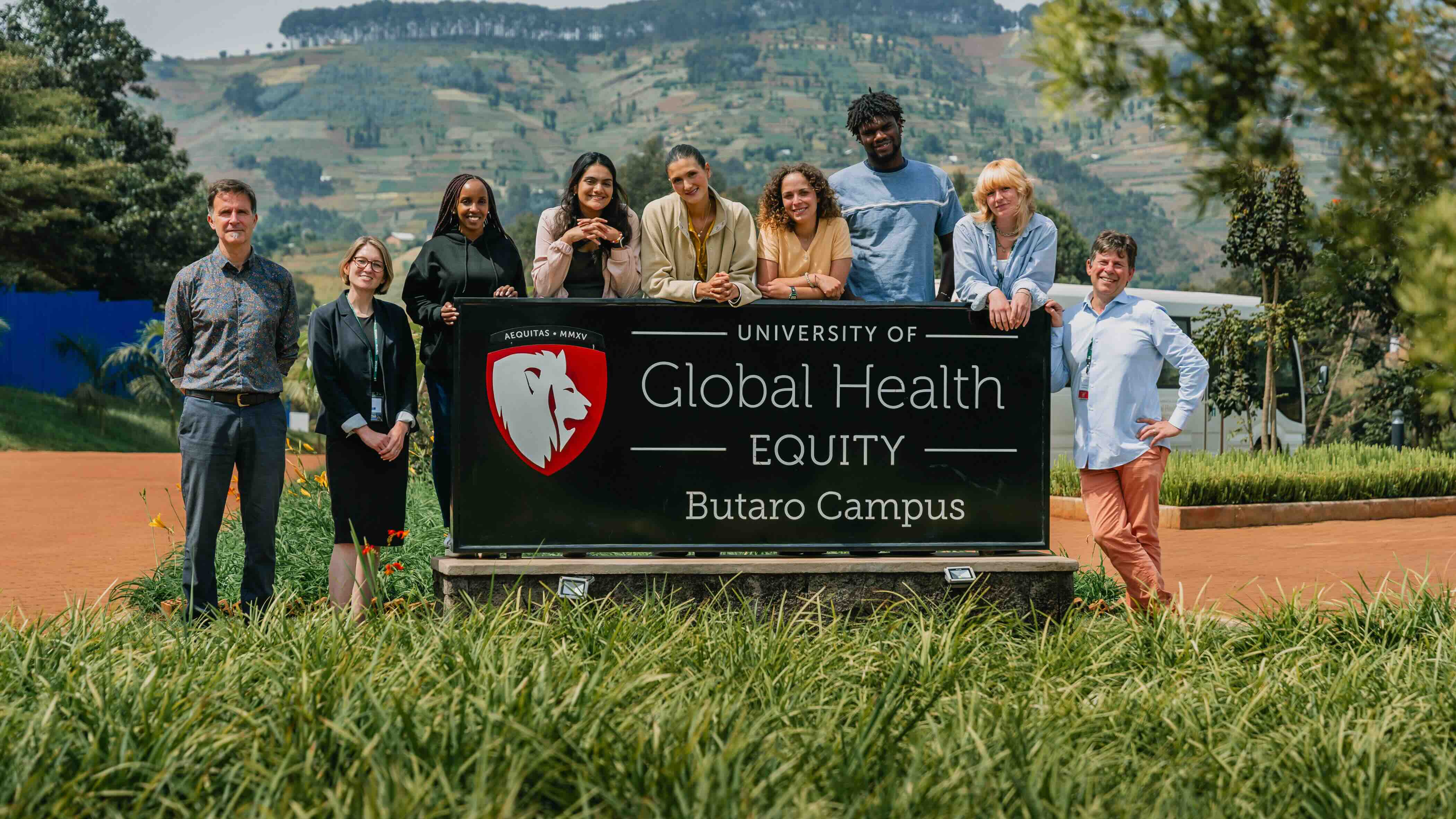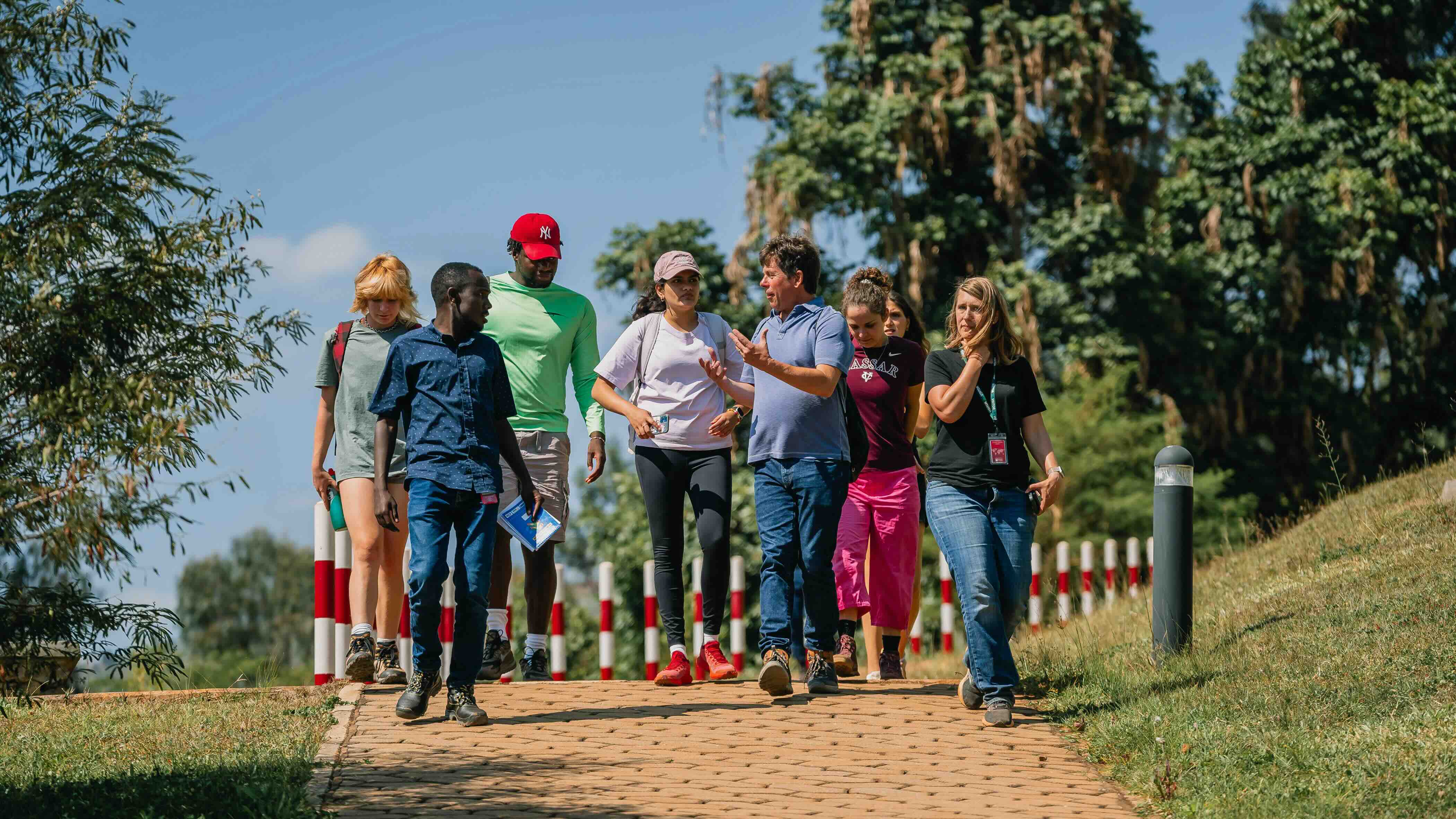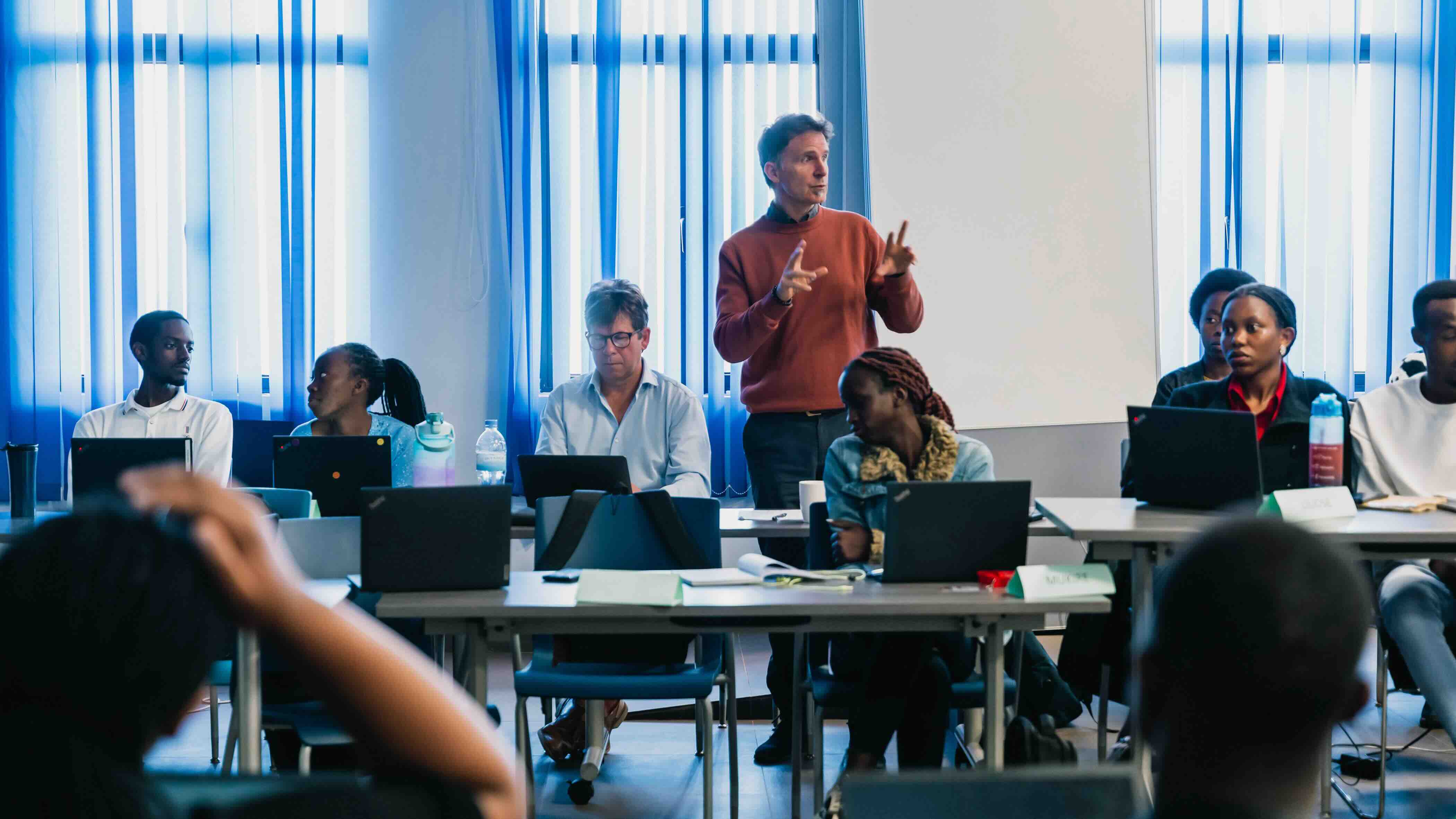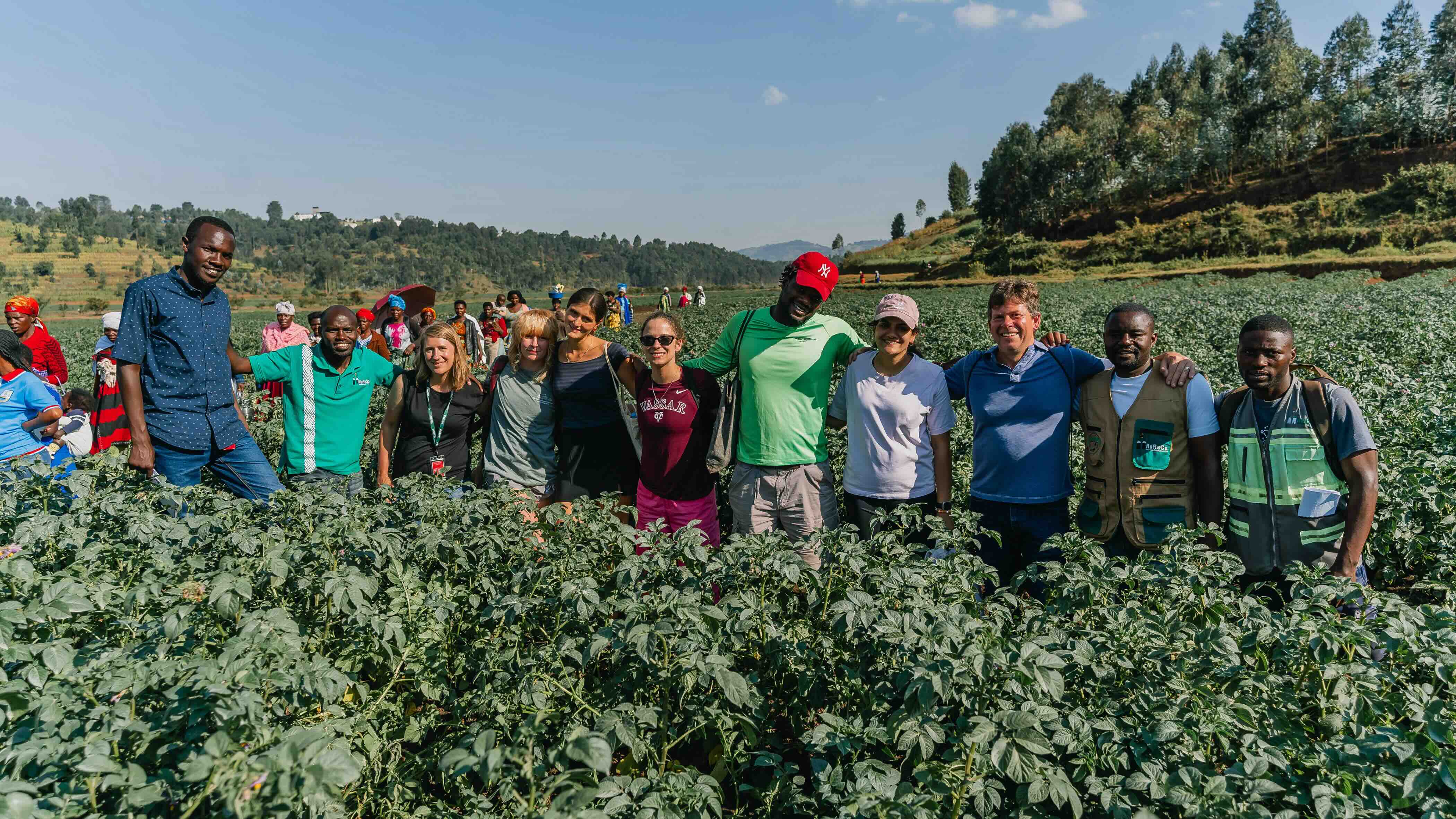Vassar Global Partnership Opens Minds and Hearts
Vassar’s partnership with an innovative medical school in East Africa took another step forward this summer when five Vassar students traveled to Rwanda to collaborate on a course in public health with students at the University of Global Health Equity (UGHE).

President Elizabeth H. Bradley and several members of Vassar’s faculty and administration have made multiple trips to UGHE since the partnership was launched in 2019, but this summer marked the first time students from the two institutions had a chance to learn in person together. And the Vassar students who took part in this experiment pronounced it a resounding success.
“This trip perfectly encapsulated how Vassar is a breeding ground for opportunity to discover your passions, hone your skills, and explore the unknown,” said Ambica Kale ’26, a political science and economics major from Mumbai, India. “The five of us were lucky enough to have this opportunity, and I can say with utmost certainty that my world has been expanded, my mind has been opened, and my heart is fuller.”
Kale and her four Vassar companions collaborated with about 50 UGHE first-year students on a course that examined the role water plays in sanitation, health, ecology, safety, traditional and religious beliefs, and everyday life in Rwanda and elsewhere in Africa. The Vassar students prepared for the trip by taking a five-week course during the Spring Semester on the Poughkeepsie campus about water-related issues on the African continent co-taught by Vassar Professor Thomas Parker and Dr. Denis Regnier, Head of Humanities and Social Sciences at UGHE.

Parker, Associate Professor and Chair of French and Francophone Studies, also teaches courses in Environmental Studies. He said the course he co-taught with Regnier had prepared the five Vassar students for projects they would be undertaking with UGHE students. “The course linked study in the humanities with issues related to water,” he said. During their trip, the students studied Rwanda’s innovative water infrastructure initiatives and visited Water Access Rwanda—a provider of potable water—a sugar cane plantation, an eco-park in Kigali, Rwanda’s capital, a tea plantation, and a coffee washing station. They also met with the founders of Rwandan Young Water Professionals, an organization that promotes interest in water-related issues among young people.
“We also visited Lake Kivu, one of Rwanda’s major water resources, and talked to fishermen, who integrate singing in Amashi, a traditional language, and cultural mythologies surrounding water in their nightly fishing rituals,” Parker added.
Regnier called the presence of Vassar students on the UGHE campus a “highlight of the semester’s start” for the new class of medical students. “Their active participation in the African History and Political Economy course, alongside the presence of Vassar College faculty, has enriched the learning experience by offering diverse perspectives and fostering a vibrant academic environment,” he said. “The Vassar College students collaborated with UGHE students on group presentations about water in Africa, further deepening their understanding of historical and political contexts while strengthening the ties between the two institutions.”

The interaction between UGHE and Vassar students wasn’t confined to the classroom. Croix Horsley ’26, a religion and education double major from Cinnaminson, NJ, played a leading role in creating a Vassar-UGHE Student Club designed to foster ongoing relationships among students at both institutions. The club has been endorsed and funded by the Vassar Student Association. “President Bradley approached me and asked if I could help initiate such a club,” Horsley said, “so we talked with some UGHE administrators to explore what might make the most sense. We were thinking about organizing game nights or movie nights, and our first joint meeting this summer was on mental health—how students at Vassar are supported when we face various challenges.”
Talia Yustein ’26, an environmental studies major from Montclair, NJ, said she too enjoyed the social aspect of the collaboration. “It was great to get to know the UGHE students and see their passion for public health,” Yustein said. “When we broke down into smaller groups, there was a lot of bonding, and I absolutely want to continue my relationships. Some of the students I met I already consider friends. I’d love to go back sometime for more interaction with them, and I’m grateful to have had the experience.”

President Bradley, who taught a course titled Scientific Reasoning while accompanying the students and some administrators to UGHE this summer, said all the feedback she received from students at both institutions had been positive. “All of them just loved working together in groups,” she said.
Bradley said a principal goal of the collaboration—instilling the liberal arts in the UGHE curriculum—is apparently gaining traction throughout Rwanda’s education community. “I met the Minister of Education (Gaspard Twagirayezu),” the President said, “and he told me, ‘We need the liberal arts approach in our secondary schools, too.’”
The President added she had witnessed tangible evidence that a curriculum that includes the liberal arts is producing better health care professionals. “I spoke to some of the older students at the hospital, and they told me, ‘I treat my patients differently.’ It has opened their minds.”